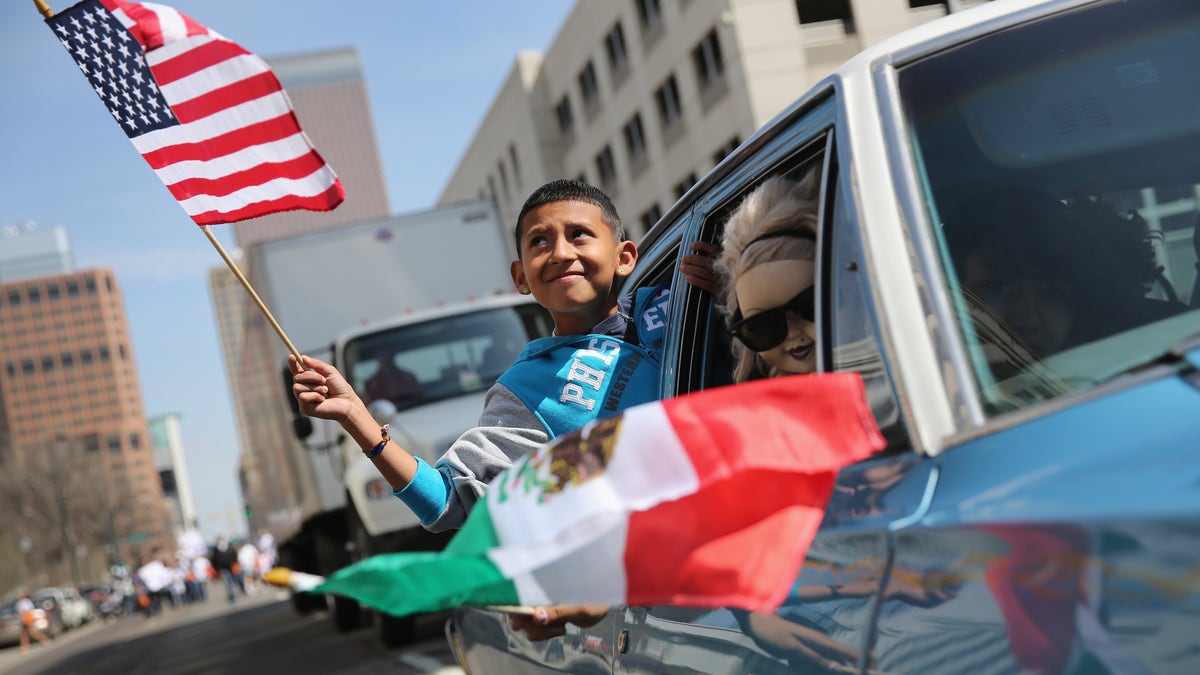
DENVER, CO - MAY 04: A boy rides in a low rider during a Cinco de Mayo parade on May 4, 2013 in Denver, Colorado. Hundreds of thousands of people were expected to attend the two day event, billed as the largest Cinco de Mayo celebration in the United States. Cinco de Mayo observes the victory of the Mexican army over French forces on May 5, 1862 in the town of Puebla, Mexico. The festival celebrates Mexican culture and is one of the most popular annual Latino events in the United States. (Photo by John Moore/Getty Images) (2013 Getty Images)
We now know that it is possible to speak two languages fluently and switch from one to the other with ease, but the gnawing question is, Can we belong to two different cultures?
My mantra is that a language does not exist in a vacuum, that it does not float like a huge bubble drifting hither and thither in the air, feeding on itself, immune to everything, being just language, sounds with meanings, from which we derive “our” way of making ourselves understood by all others who share the bubble with us. So many languages, so many bubbles.
Those of us who wade in two or three, or even four [languages] have, sad to say, split personalities and in many respects we are schizophrenic and often lose a sense of belonging.
My mantra is that language is not just a set of sounds with meaning. A language is not only words, but history, climate, customs, art, science, gastronomy, lore, religion, prejudices, heroes, taboos, literature, music and lyrics… Culture in brief. All those ingredients, added to sounds with meaning, is the complexity that becomes a tough nut to crack when we try to master two languages at the same level. And we all err when we think that just words, phrases, idioms, idiotisms, phonetics, will make us learn a language and even pass off as a native. Sooner or later we will be found out.
My mantra is that language belongs to a people and to a culture, and my question, Can we belong to two languages and two cultures equally and jump from one to another with ease? makes more sense than we would care to admit because it is an uncomfortable question, perhaps even embarrassing since it might put in jeopardy the true essence of our being, the depths of our cultural belonging, our very roots. Can we have two roots from which we get the sap of our lives, of our thinking, of our allegiances?
I have no qualms in admitting that I often envy those who only have one language and one culture because, in more ways than one, they are free and stand on the firm ground of one language and one culture, having no need to question them. Those of us who wade in two or three, or even four… have, sad to say, split personalities and in many respects we are schizophrenic and often lose a sense of belonging.
Arthur Koestler mentions something similar in his autobiography Arrow in the Blue, when he narrates about his nightmares and shouting in his dreams in Hungarian, German, French, Hebrew and English, all living, close together, in his brain, with their conflicting backgrounds and cultures, elbowing one another for room and comfort, all vying for attention and recognition.
Those of us who are bilingual and bicultural, which is the same, if we are worth our salt, have split personalities and a certain sense of being eternal outsiders, and always misunderstood. We must be on the alert at all times because in our daily intercourse we know there are subjects, names, facts, that we cannot mention in one culture because we will not be understood. We must change tones of voice, manners, references, gestures, and avoid certain taboo subjects that in our other culture are fine. Certain jokes will make us laugh in one culture, while in another will make us angry.
It is indeed a rewarding experience to water at different and diverse cultural rivers, of course. We all know the advantages, but today I just wanted to point out how lonely the bicultural road is, not always paved with wine and roses. Today, especially today, I feel torn between two languages and two cultures, lonely and sad, a stranger.
I would like to hear from others who are also afflicted by this culture-split syndrome so as to feel a bit less lonely, a bit comforted, because two in distress seems less.
